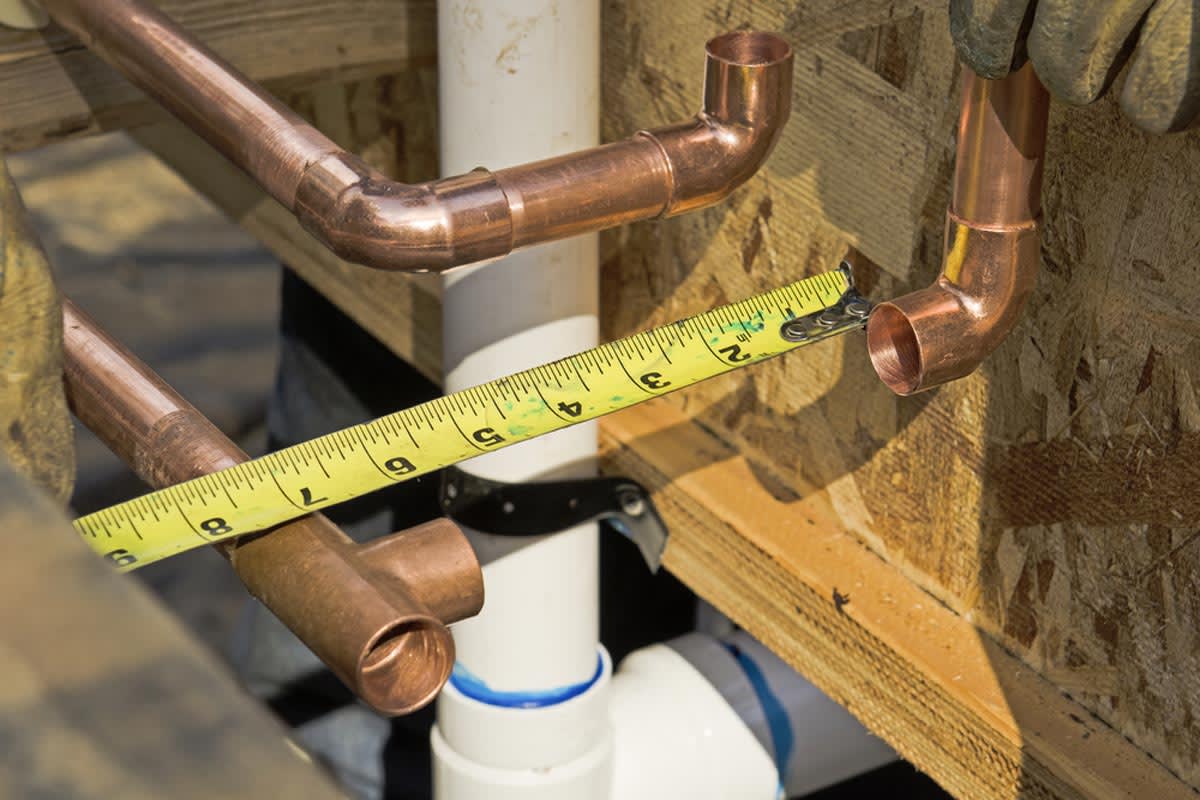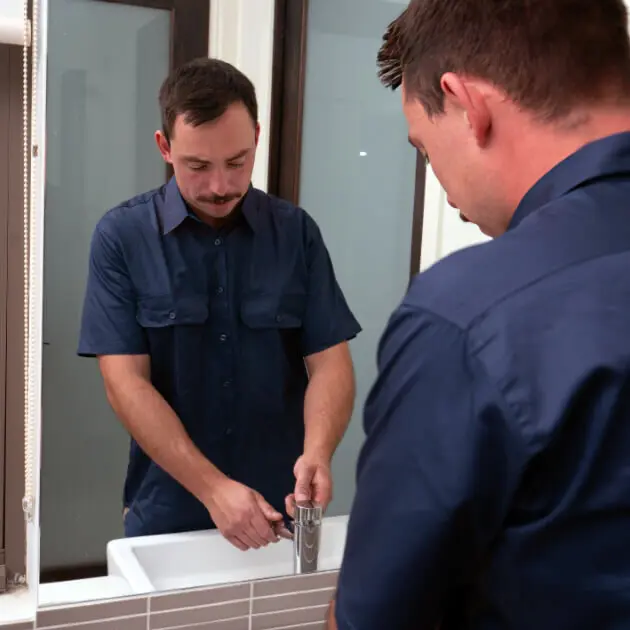Key Bathroom Plumbing Guidelines for New Homeowners
Key Bathroom Plumbing Guidelines for New Homeowners
Blog Article
We have come across this post involving General Plumbing Tips for New Homeowners down the page on the net and believe it made good sense to talk about it with you on my blog.

For new house owners, understanding and keeping bathroom plumbing can save both money and time by avoiding costly concerns down the line. Below are some important washroom plumbing tips to assist you maintain whatever running smoothly.
Familiarize Yourself with the Main Shut-Off Valve
Understanding where the primary water shut-off valve is located in your house is crucial. This allows you to quickly turn off the water supply in case of major leakages or during plumbing emergency situations, preventing extensive water damages.
Regularly Inspect for Leaks
Small leaks can bring about large troubles. Consistently examine under sinks, around commodes, and near pipes components for any type of signs of leaks. Seek wetness, little drips, or corrosion. Capturing and repairing leaks early can protect against extra significant damages and save water.
Do Not Neglect Slow Drains
If your sink or bathtub is draining pipes gradually, it's typically an indicator of a clog developing. Addressing this very early can stop a total blockage. Utilize a plunger or a plumber's serpent to clean out debris. Stay clear of utilizing chemical drainpipe cleansers as they can harm your pipes over time.
Know What Not to Flush
Commodes are not garbage disposals. Avoid purging anything other than bathroom tissue and human waste. Products like wipes, womanly hygiene items, and cotton swabs should be disposed of in the garbage to stop blockages and sewer back-ups.
Install Strainers in Drains
Location filters in your sink and bathtub drains pipes to catch hair and various other debris prior to they enter your pipes system. Cleansing the filters routinely will help prevent buildup and keep water flowing easily.
Preserve Your Water Heater
Guarantee your water heater is readied to an ideal temperature level (generally around 120 levels Fahrenheit) to prevent scalding and minimize power usage. Flush the tank annually to eliminate debris build-up, which can reduce the effectiveness and life expectancy of your heating unit.
Update Your Fixtures
If your home has older fixtures, take into consideration upgrading to extra effective versions. Modern bathrooms, showerheads, and faucets are created to make use of less water while supplying excellent pressure, which can significantly minimize your water costs and ecological footprint.
Be Cautious with DIY Pipes Services
While it's alluring to handle all home repair work by yourself, beware with pipes. Some issues may call for professional experience, especially if they include primary water lines or sewage system repair work. Hiring an expert can often be extra affordable than do it yourself, specifically if it prevents additional damage.
Get Ready For Winter
Shield your pipes from cold during cold weather by insulating pipelines in unheated areas like basements, attics, and garages. During extreme cold, allow cold water drip from faucets served by revealed pipelines to assist protect against cold.
Schedule Regular Maintenance
Consider scheduling annual inspections with a certified plumbing professional. They can find problems that you may miss out on, such as concealed leakages or deterioration on pipelines and fixtures. Routine maintenance helps extend the life of your plumbing system and can prevent emergencies.
Final thought
Comprehending and keeping your home's bathroom plumbing can prevent many common problems. By complying with these necessary ideas, you can ensure your shower room stays functional and efficient, conserving you money and time over time.
Essential Plumbing Tips For Every Homeowner
As a homeowner, taking care of your plumbing system is crucial to maintaining the functionality and value of your home. While plumbing issues can be daunting, there are some essential tips that every homeowner should know to prevent major problems and save money in the long run. Here are some key plumbing tips that every homeowner should be aware of.
Regular Maintenance
One of the most important plumbing tips for homeowners is to schedule regular maintenance checks with a professional plumber. By having your pipes, fixtures, and appliances inspected regularly, you can catch any potential issues before they turn into costly repairs. A plumber can also provide valuable advice on how to properly maintain your plumbing system to prevent clogs, leaks, and other common problems.
Know Your Shut-Off Valves
It's essential for homeowners to know where the main shut-off valve is located in case of a plumbing emergency. This valve controls the flow of water into your home and can help prevent flooding in the event of a burst pipe or other serious issues. Additionally, it's important to know where the shut-off valves are for individual fixtures such as sinks, toilets, and washing machines so you can quickly stop the water supply if needed.
Watch What You Flush
Another important plumbing tip for homeowners is to be mindful of what gets flushed down the drains and toilets in your home. Avoid flushing items like paper towels, feminine hygiene products, grease, or hair as these can cause clogs and damage to your pipes. Installing drain filters or screens can help catch debris before it causes a blockage.
Insulate Pipes in Cold Weather
During winter months, it's crucial to insulate any exposed pipes in unheated areas of your home to prevent them from freezing and bursting. Frozen pipes can lead to extensive water damage and costly repairs. By adding insulation or heat tape to vulnerable pipes, you can protect them from extreme temperatures and avoid potential disasters.
Address Leaks Promptly
If you notice any signs of leaks such as damp spots on walls or ceilings, musty odors, or dripping faucets, it's important to address them promptly before they worsen. Even small leaks can lead to mold growth, water damage, and increased water bills over time. Ignoring leaks can result in more extensive repairs down the line.
Taking care of your home's plumbing system is an essential part of being a responsible homeowner. By following these key plumbing tips and staying proactive about maintenance and repairs, you can keep your plumbing system running smoothly and avoid costly issues in the future. Remember that prevention is key when it comes to plumbing problems – investing time and effort now can save you money and headaches later on. Stay informed about your home's plumbing system and don't hesitate to consult with a professional plumber if you have any concerns or questions.

Call Today Report this page